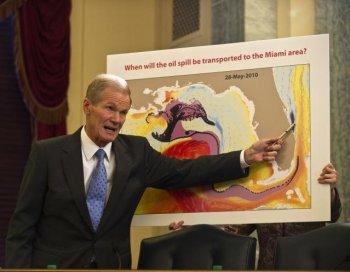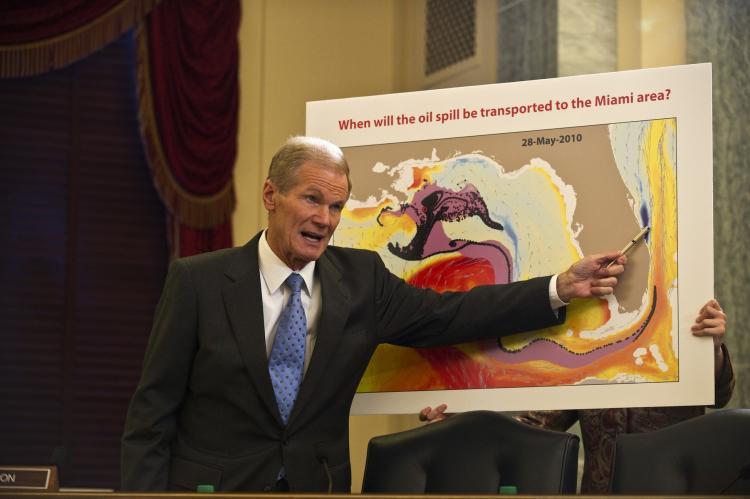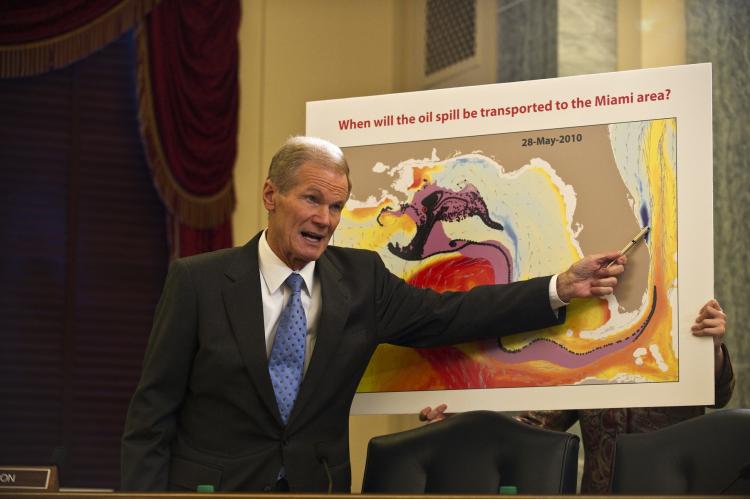The expanding Gulf oil spill threatens South Florida’s $1.2 billion recreational fishing industry, according to a recent study. Hundreds of millions in revenue and 8,000 jobs are at stake for a region widely known for its freshwater and saltwater fishing.
Recreational fishing in the Everglades generates nearly $722 million in annual sales. This popular pastime produces more than $378 million in wages, and $162 million more in tax revenue. However, according to the report “The Economic Impact of Recreational Fishing in the Everglades Region,” Florida’s 13 southernmost counties could be significantly hurt if the Gulf oil spill isn’t contained soon.
Conducted by the Bonefish & Tarpon Trust and funded in part by the Everglades Foundation, the study is based on a survey of more than 1,600 area anglers who were asked about the number of days they fished, what they fished for, and their related expenditures.
The study was originally designed to determine how much the Everglades had to contribute to the economy, but the fast approaching oil spill reveals what the region could lose.
“The spill has really put the findings in a new light for me,” stated study author and fisheries economics specialist Tony Fedler, Ph.D., in a press release from the Everglades Foundation. “The study now speaks to how fragile our environment is, how dependent we are on it and the consequences of failing to protect it.”
Report authors suggest that the actual economic contribution and potential loss is likely to be much greater than the findings suggest. They explain that as their survey was limited to Florida residents, it did not account for the revenue generated by the many out of state fishermen who travel to the Everglades to fish.
In addition, those who make a living related to the recreational fishing industry, including fishing guides to boat charter services, could suffer significant financial setbacks. The report notes that even secondary industries dependent on sport fishing such as boat manufacturers, fishing gear, and apparel makers could be negatively impacted should the spill reach the Everglades region.
The report also finds that the economic benefits of recreational fisheries associated with the Everglades extend outside the region as well.
“In a worst case scenario, oil reaches the mangrove habitats that serve as nurseries for so many of the game fish that support this sport fishing community, which would have far-reaching consequences,” stated Aaron Adams, Ph.D., director of Operations for Bonefish &Tarpon Trust in a press release from the Everglades Foundation.
Adams continued that juvenile tarpon, which he considers to be the future of the fishery, need healthy mangrove habitats. He says the potential impacts aren’t limited to South Florida, as adult tarpon migrate annually into the northern Gulf of Mexico. On the east coast they travel as far north as the Chesapeake Bay.
“This event underscores the need for our resource managers to see the whole picture when they make decisions about resource use.”
[FOR WEB] For a complete copy of the study, go to: http://everglades.3cdn.net/704e4f6cc378aa765d_2ym6bi7f6.pdf [FOR WEB]
Recreational fishing in the Everglades generates nearly $722 million in annual sales. This popular pastime produces more than $378 million in wages, and $162 million more in tax revenue. However, according to the report “The Economic Impact of Recreational Fishing in the Everglades Region,” Florida’s 13 southernmost counties could be significantly hurt if the Gulf oil spill isn’t contained soon.
Conducted by the Bonefish & Tarpon Trust and funded in part by the Everglades Foundation, the study is based on a survey of more than 1,600 area anglers who were asked about the number of days they fished, what they fished for, and their related expenditures.
The study was originally designed to determine how much the Everglades had to contribute to the economy, but the fast approaching oil spill reveals what the region could lose.
“The spill has really put the findings in a new light for me,” stated study author and fisheries economics specialist Tony Fedler, Ph.D., in a press release from the Everglades Foundation. “The study now speaks to how fragile our environment is, how dependent we are on it and the consequences of failing to protect it.”
Report authors suggest that the actual economic contribution and potential loss is likely to be much greater than the findings suggest. They explain that as their survey was limited to Florida residents, it did not account for the revenue generated by the many out of state fishermen who travel to the Everglades to fish.
In addition, those who make a living related to the recreational fishing industry, including fishing guides to boat charter services, could suffer significant financial setbacks. The report notes that even secondary industries dependent on sport fishing such as boat manufacturers, fishing gear, and apparel makers could be negatively impacted should the spill reach the Everglades region.
The report also finds that the economic benefits of recreational fisheries associated with the Everglades extend outside the region as well.
“In a worst case scenario, oil reaches the mangrove habitats that serve as nurseries for so many of the game fish that support this sport fishing community, which would have far-reaching consequences,” stated Aaron Adams, Ph.D., director of Operations for Bonefish &Tarpon Trust in a press release from the Everglades Foundation.
Adams continued that juvenile tarpon, which he considers to be the future of the fishery, need healthy mangrove habitats. He says the potential impacts aren’t limited to South Florida, as adult tarpon migrate annually into the northern Gulf of Mexico. On the east coast they travel as far north as the Chesapeake Bay.
“This event underscores the need for our resource managers to see the whole picture when they make decisions about resource use.”
[FOR WEB] For a complete copy of the study, go to: http://everglades.3cdn.net/704e4f6cc378aa765d_2ym6bi7f6.pdf [FOR WEB]







